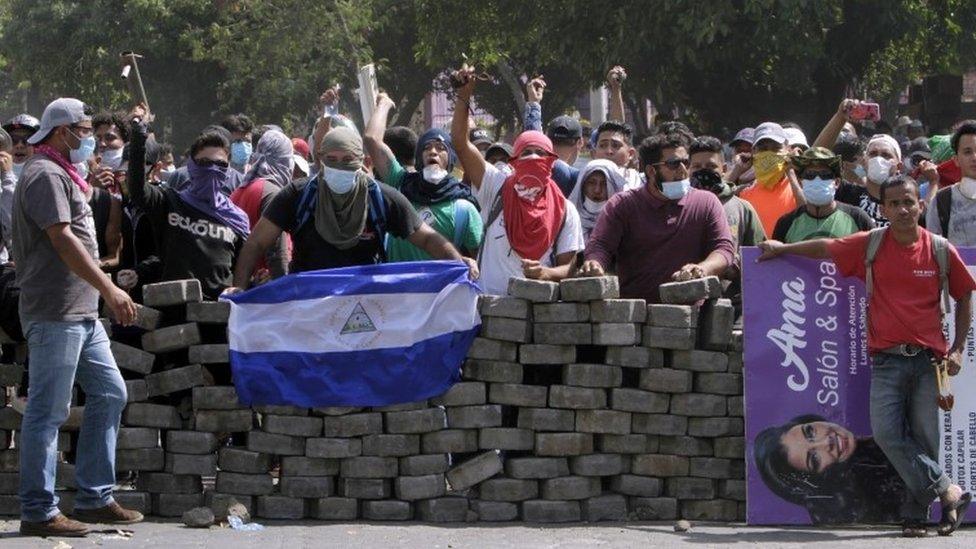Nicaragua security forces launch deadly raids
- Published
Deadly Nicaragua clashes continue
At least 10 people were killed in Nicaragua on Sunday as security forces moved into anti-government protest hotspots, a human rights group says.
According to the Nicaraguan Association for Human Rights, four of the dead were riot police officers.
Human rights groups say the number of people killed in three months of anti-government protests exceeds 300.
Residents of the city of Masaya described coming "under siege" from police sent to clear blockades.
What's happening in Masaya?
There is a stand-off between police and paramilitaries loyal to the government on the one hand and anti-government protesters on the other.
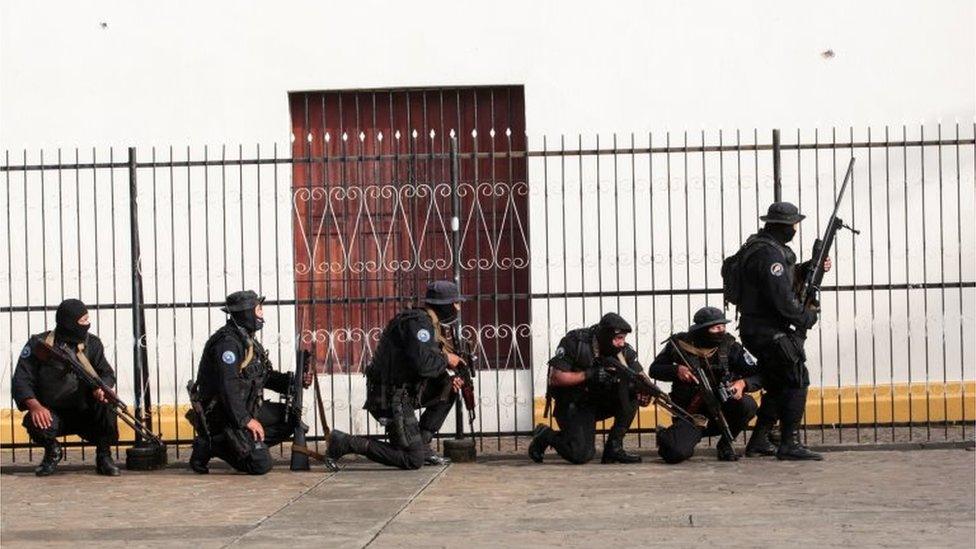
Special forces surrounded a church in Monimbo, an indigenous community in Masaya
Masaya, a city 30km (19 miles) south of the capital, Managua, has been at the centre of the protests since they first erupted almost three months ago.
Protesters demanding the resignation of President Daniel Ortega have set up roadblocks and barricades both inside the city and on the roads leading to it.
The government has launched "Operation Clean-up" to try to remove the barricades and retake control of the city, saying that the blockades are harming businesses and disrupting the lives of Nicaraguans.
How many have been killed?
Anti-government protests first kicked off after the announcement of changes to Nicaragua's pension system on 18 April, which have since been scrapped.
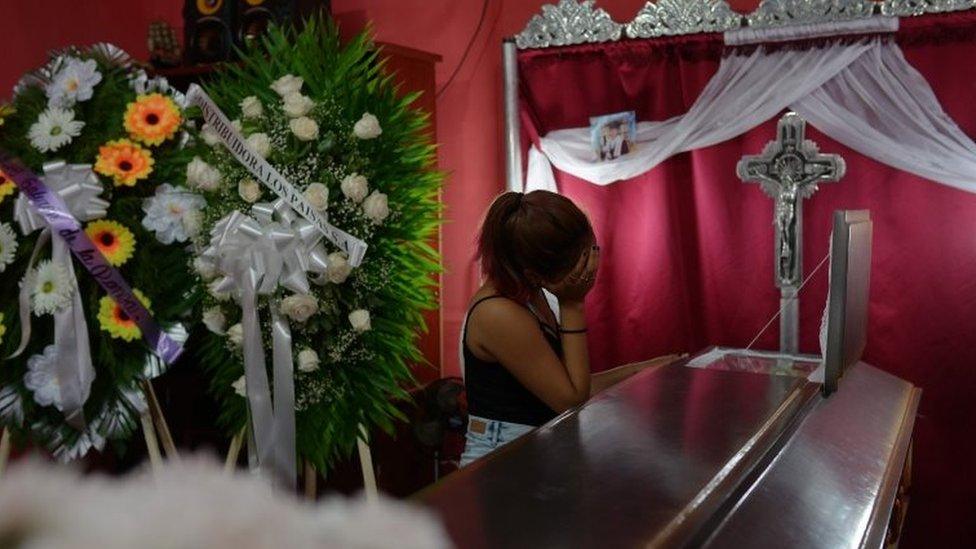
Hundreds of people have been killed since the crisis began in April
Police aided by paramilitary groups loyal to the government tried to suppress the protests and, on day two of the protest marches, three people including one police officer were killed.
The killings caused outrage and the protests widened into demands for President Ortega to step down.
The government says the protesters are trying to stage a coup d'etat against Mr Ortega and have tried to suppress the protest.
Since then, hundreds more people have been killed. The government has not released any official figures in recent weeks, saying that each and every death has to be investigated thoroughly before accurate numbers can be given.
The Inter-American Commission of Human Rights (IACHR) said 264 people had been killed between the start of the protests and 11 July.
Human rights groups inside Nicaragua say the figure is now up to more than 300.
Why are the protest so deadly?
Protesters allege that the security forces employed excessive force, using live bullets and sharpshooters against demonstrators.
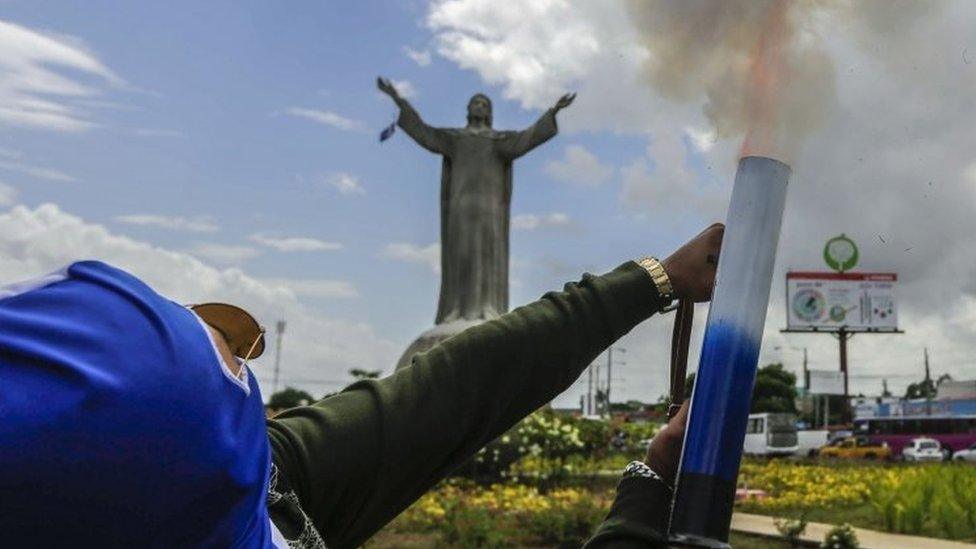
Some demonstrators have been using home-made mortars
It is an allegation which has been echoed by a number of human rights groups. Amnesty International said last week that "state repression has reached deplorable levels" in Nicaragua, external.
"The message sent by the highest ranking Nicaraguan authorities is that they are willing to do anything to silence the voices of those who demonstrate against this violent repression," the pressure group said.
Human rights activists say that paramilitary groups loyal to the government, known locally as "grupos de choque" (shock forces), are behind much of the violence.
The government denies the violence is one-sided and points to the use of home-made mortars by the protesters as evidence that the security forces come under attack.
A number of police officers have been among those killed. The government has also pointed to instances in which government supporters have been attacked to back up their claim that the protesters are "terrorists".
But most human rights groups agree that the presence of armed paramilitary groups has been a deadly factor, with hooded and masked men opening fire on protesters.
One resident in Masaya told French news agency AFP: "We are being attacked by the national police and paramilitaries armed with AK-47s."
There are also allegations that members of the security forces are not allowing the wounded to be taken to hospital.
Why have clergy been attacked?
The Nicaraguan Episcopal Conference has been trying to act as a mediator between the protesters and the government.
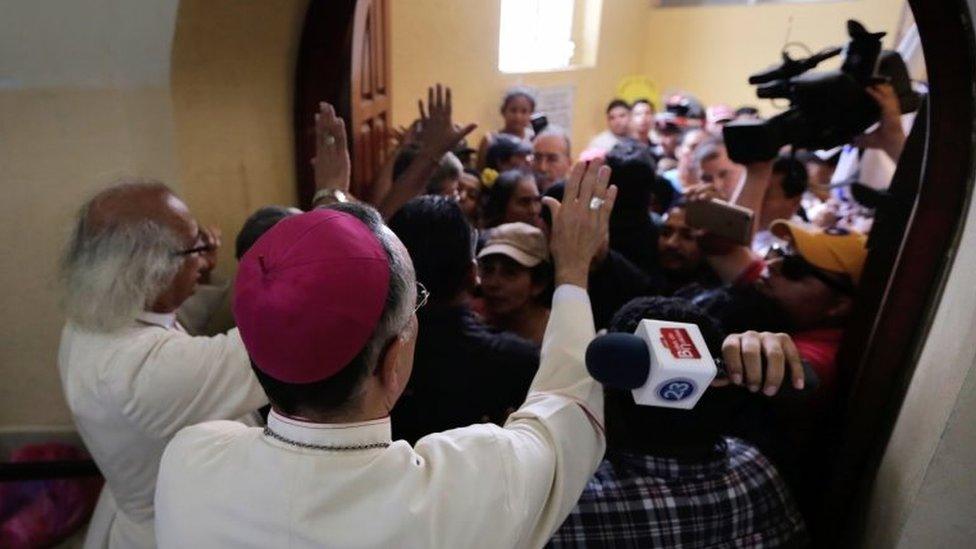
High-ranking members of the Catholic clergy have been trying to mediate in the crisis
But after denouncing attacks on civilians, members of the clergy have themselves been targeted by pro-government groups.
On Sunday, paramilitaries damaged the car of Abelardo Mata, the Roman Catholic bishop of Esteli, breaking windscreens and windows and damaging the tyres while the bishop was inside.
Churches have also been surrounded by pro-government groups when protesters have sought shelter inside.
On Saturday, dozens of students in the capital Managua were besieged by pro-government forces for hours in a parish church next to the National Autonomous University of Managua (UNAN) before finally being allowed to leave after the intervention of Catholic bishops.
Two students were killed and many said they felt the security forces had been shooting to kill.
What next?
A "national dialogue" in which protesters and members of the government met has so far achieved very little and stalled repeatedly.
There has been widespread international condemnation of the Nicaraguan government and calls for the security forces to be reined in.
However, the number of dead has been increasing and in the past two weeks there appear to have been more rather than fewer operations launched by the security forces, with deadly results.
With President Ortega recently ruling out early elections, which would have been one of the possible compromises, a solution seems far off.
- Published9 July 2018
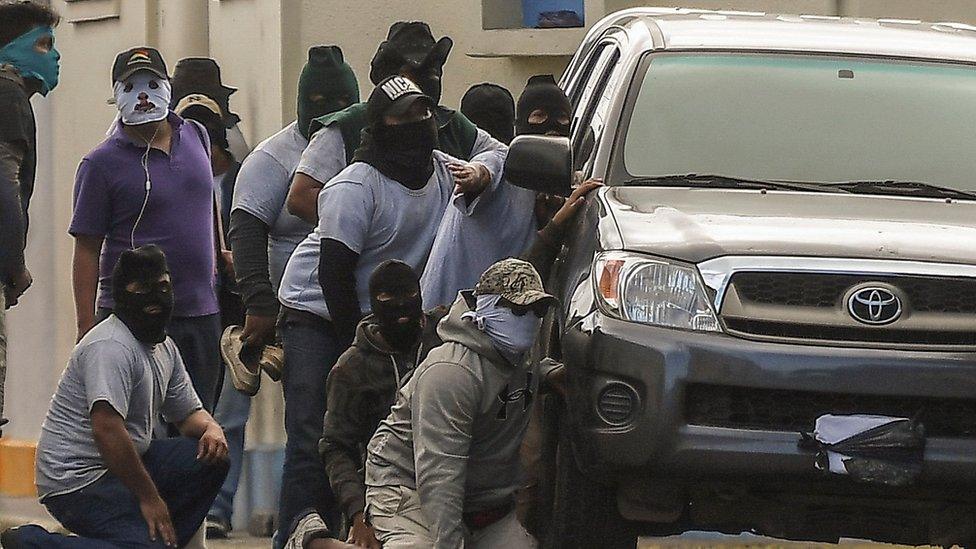
- Published24 June 2018
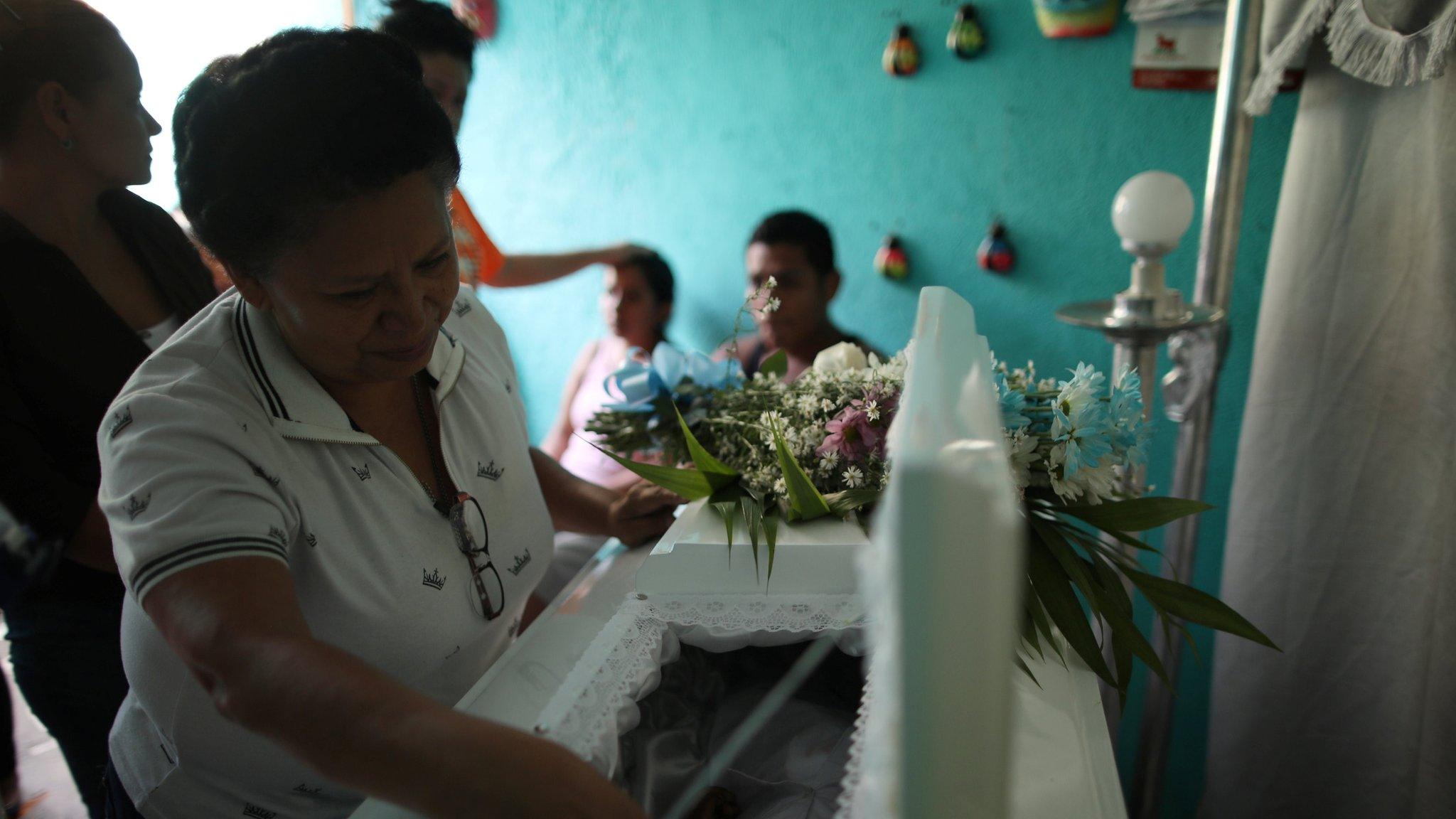
- Published29 May 2018
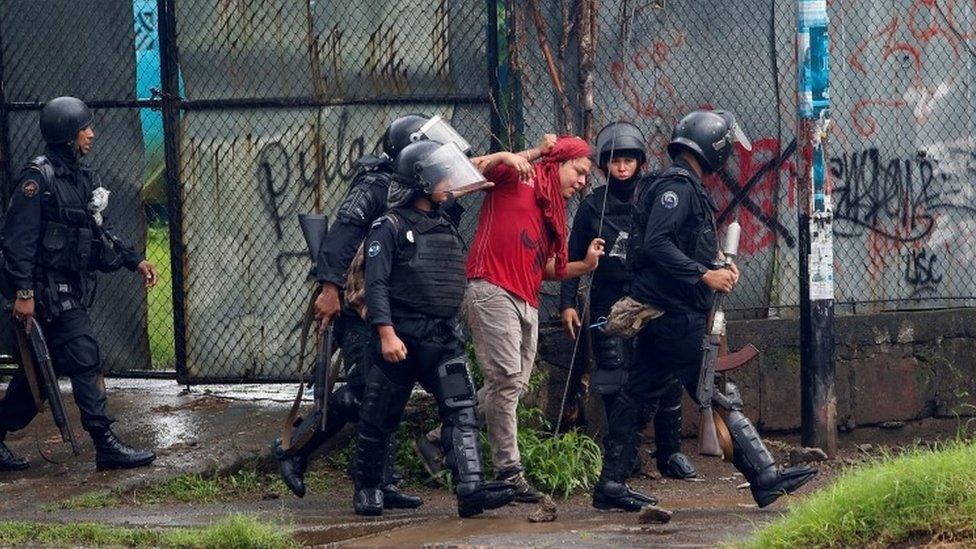
- Published16 July 2018
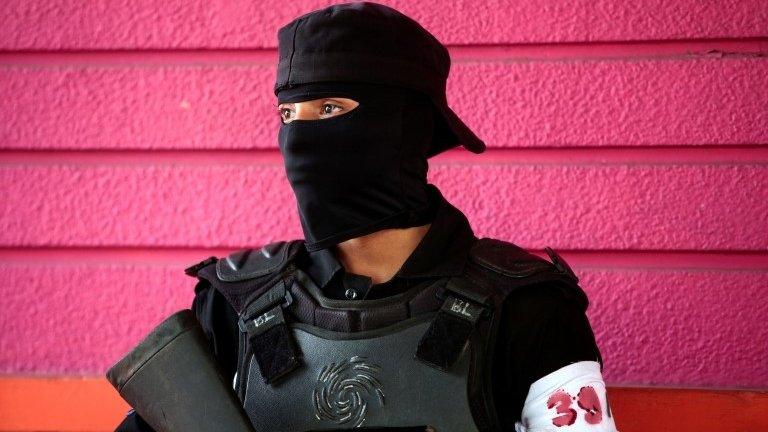
- Published23 April 2018
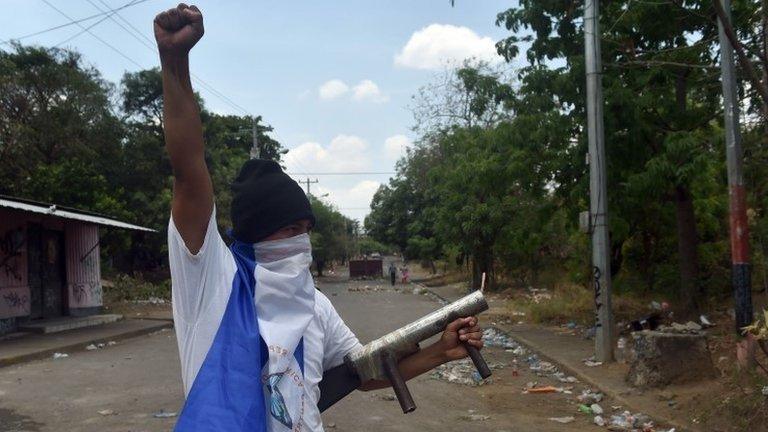
- Published22 April 2018
